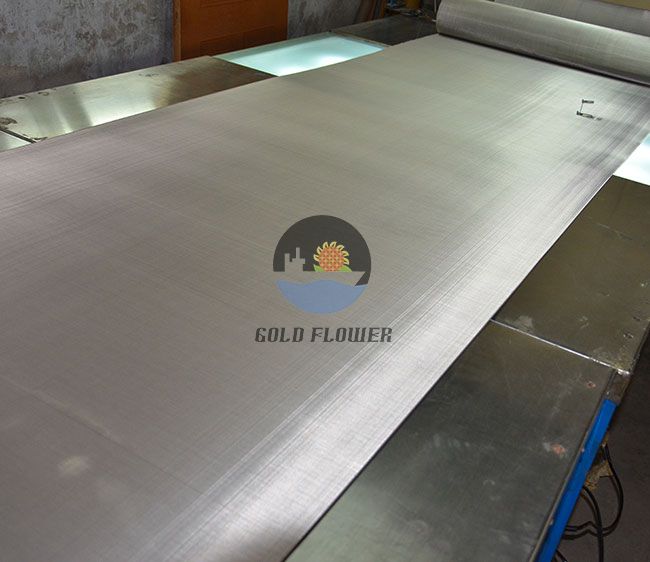Dez . 01, 2024 05:02 Back to list
best wire netting
The Best Wire Netting Applications, Benefits, and Selection Guide
Wire netting, also known as wire mesh or wire fencing, is a versatile and indispensable material used in various industries and applications. From construction to agricultural use, wire netting serves crucial functions that enhance durability, safety, and efficiency. This article delves into the best wire netting options available, their benefits, and guidelines for selecting the appropriate type for specific purposes.
Understanding Wire Netting
Wire netting comprises woven or welded wire strands that create a grid-like structure. The wires can be made from various materials, with galvanized steel being the most common due to its strength and corrosion resistance. Wire netting can also be coated with other materials, such as PVC, to enhance its durability and aesthetic appeal. Different gauge sizes (the thickness of the wire) and mesh openings are available, making wire netting a customizable solution for diverse needs.
Applications of Wire Netting
The versatility of wire netting allows it to be used across numerous fields
1. Agriculture In farming, wire netting protects crops from pests and wildlife, provides support for climbing plants, and serves as fencing for livestock enclosures. It is crucial for maintaining the health of crops and the safety of animals.
2. Construction and Engineering Wire netting is widely used in construction for reinforcing concrete, providing stability to structures, and creating barriers and enclosures at construction sites. It plays a critical role in ensuring safety and compliance with building regulations.
3. Industrial Use In manufacturing, wire netting is employed for securing machinery and preventing unauthorized access. It is also utilized in filtration systems, where it separates materials based on size.
4. Home and Garden Homeowners often use wire netting in gardens to keep out pests, support plants, and create decorative fencing. Its aesthetic versatility makes it a popular choice for landscaping projects.
5. Safety and Security Wire netting is an essential component in creating secure environments, such as prisons, schools, and public utilities. It can be used to erect fences that demarcate boundaries and provide protection from intruders.
Benefits of Using Wire Netting
1. Durability One of the most significant advantages of wire netting is its strength and durability. Galvanized steel wire can withstand harsh weather conditions and heavy impacts, making it suitable for both indoor and outdoor applications.
best wire netting

2. Cost-Effectiveness Wire netting is generally affordable compared to other fencing and support options. Its long lifespan and minimal maintenance requirements contribute to cost savings over time.
3. Versatility With various sizes, materials, and styles available, wire netting can be tailored to fit the specific needs of any application, whether it is agricultural, industrial, or decorative.
4. Maintenance-Free Options Many wire netting products come with coatings that protect against rust and corrosion, reducing the need for regular maintenance and ensuring longevity.
5. Environmental Friendliness Most wire netting is recyclable, making it an environmentally friendly option compared to plastic or synthetic alternatives.
Selecting the Best Wire Netting
Choosing the right wire netting depends on several factors
1. Purpose Determine the primary use of the wire netting. For example, agricultural applications may require sturdier materials, while decorative fencing may focus more on aesthetics.
2. Gauge Thickness The thickness of the wire, indicated by gauge numbers, affects the strength and durability of the netting. Lower gauge numbers represent thicker wires, making them more robust.
3. Mesh Size The size of the openings in the mesh is critical. Smaller openings are ideal for keeping out small pests, while larger gaps may be suitable for livestock fencing.
4. Material Choose between galvanized steel, stainless steel, or plastic-coated wire depending on the level of corrosion resistance needed and the environmental conditions.
5. Installation Consider whether you can install the wire netting yourself or if professional installation is required, as this might impact the type and style you choose.
In conclusion, wire netting is a functional and adaptable material that serves various industries effectively. Understanding its applications, benefits, and how to select the right type can help individuals and businesses make informed decisions tailored to their specific needs. Whether for securing a property, supporting plants, or reinforcing structures, the right wire netting can provide safety, durability, and peace of mind.
share
-
CE Certified 250 Micron Stainless Steel Mesh | Precision & Durability
NewsAug.27,2025
-
CE Certified 250 Micron Stainless Steel Mesh for Precision & Durability
NewsAug.26,2025
-
CE Certified 250 Micron Stainless Steel Mesh for Precision & Durability
NewsAug.25,2025
-
Premium CE Certified Metal Fine Mesh for Precision & Safety
NewsAug.24,2025
-
Stainless Steel Wedge Wire Mesh: Durable, Precision Filtration
NewsAug.23,2025
-
CE Certified 250 Micron Stainless Steel Mesh for Precision Filtration
NewsAug.22,2025

